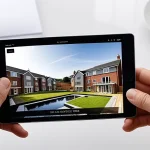Recent Breakthroughs in UK Healthcare Technology
The UK healthcare sector has witnessed significant recent breakthroughs that reshape patient care and medical practices. Among these, the rapid development of advanced medical devices and diagnostic tools stands out. These innovations enable earlier and more accurate disease detection, which is crucial for effective treatment. For instance, new imaging technologies and portable diagnostic equipment improve accessibility and precision.
Moreover, the implementation of precision medicine and genomics has transformed treatment plans. Tailoring therapies based on an individual’s genetic profile allows for targeted interventions, increasing efficacy while reducing side effects. This paradigm shift is supported by UK healthcare innovations focusing on genomic sequencing and biomarker discovery.
This might interest you : How can lifestyle changes reduce the burden on the UK health system?
The introduction of robotics and automation in clinical settings further enhances surgical precision and operational efficiency. Robotic-assisted surgeries reduce recovery times and minimize complications, while automation streamlines repetitive tasks, freeing healthcare professionals to focus on patient-centric activities. Such advances contribute to sustained improvements in healthcare quality and accessibility across the UK.
Recent Breakthroughs in UK Healthcare Technology
The UK healthcare sector has witnessed significant advancements with recent breakthroughs in medical devices and diagnostic tools. Cutting-edge imaging systems and portable biosensors now provide faster, more accurate diagnoses, reducing waiting times and improving patient outcomes. These UK healthcare innovations enhance early detection, which is critical in managing chronic and acute conditions effectively.
In the same genre : What Are the Long-Term Health Outcomes of Air Pollution in the UK?
A major stride involves the implementation of precision medicine and genomics. Through genomic profiling, healthcare professionals tailor treatments to individual genetic profiles, boosting therapeutic efficacy. This approach minimizes adverse effects and optimises intervention strategies, a notable shift from traditional one-size-fits-all models.
Robotics and automation have also been introduced into clinical settings, revolutionising surgery and routine tasks alike. Robot-assisted surgeries offer higher precision and less invasive procedures, while automated systems streamline clinical workflows, improving efficiency and safety. These advances highlight the transformative potential of healthcare technology in driving quality care and operational excellence in the UK’s healthcare system.
Digital Health Solutions Transforming Patient Care
Expanding access and engagement through technology
The rise of digital health UK initiatives marks a critical recent breakthrough in healthcare technology. Telemedicine services and virtual consultations have surged, making healthcare more accessible, especially for patients in remote areas or with mobility challenges. This expansion allows clinicians to provide timely care without the need for in-person visits, reducing waiting times and improving patient satisfaction.
Mobile health apps and wearable technologies enhance remote care by enabling patients to monitor vital signs, medication adherence, and symptom progression continuously. These tools provide real-time data, allowing healthcare professionals to make informed decisions promptly. The integration of such apps into routine care changes disease management dynamics and promotes patient empowerment.
NHS Digital plays a pivotal role in this transformation by developing infrastructure supporting remote patient monitoring. This includes secure platforms for data sharing and analytics, which ensure that remote care is safe, efficient, and well-coordinated. Altogether, these digital health UK advances reflect a clear move towards a patient-centered system, where technology bridges gaps and fosters proactive, personalized care.
Digital Health Solutions Transforming Patient Care
Digital health UK has rapidly expanded as a cornerstone of modern healthcare technology. One of the most significant recent breakthroughs is the widespread adoption of telemedicine, enabling virtual consultations that overcome geographical barriers and reduce patient waiting times. This form of remote care is particularly beneficial for patients with chronic conditions or limited mobility, providing continuous support without frequent hospital visits.
Mobile health apps are another crucial element of digital health UK, empowering individuals to manage their health proactively. These apps often incorporate reminders, symptom trackers, and personalized health insights, increasing patient engagement. Wearable technologies complement these tools by collecting real-time health data, such as heart rate or glucose levels, which can be shared directly with healthcare providers to enhance monitoring and timely interventions.
NHS Digital plays a pivotal role in supporting these advancements through initiatives aimed at integrating remote patient monitoring into everyday care. Their efforts ensure secure, accessible platforms that maintain patient privacy while promoting efficiency. Together, these digital health UK solutions exemplify how healthcare technology is transforming patient care, making it more accessible, proactive, and personalized.
The Impact of Artificial Intelligence and Data Analytics
AI is rapidly reshaping UK healthcare through its integration into diagnostics and treatment. AI in UK healthcare primarily enhances diagnostic accuracy by quickly analysing complex medical images and data, outperforming traditional methods. Machine learning algorithms sift through vast datasets to assist clinicians in identifying diseases earlier and tailoring personalized therapies.
Healthcare data analytics plays a significant role in this transformation. By combining clinical and genomic data, advanced analytics facilitate personalised treatment plans that adapt to patient-specific variables, improving overall care efficacy. This approach supports ongoing treatment adjustments based on real-time insights.
Furthermore, AI enables improved patient outcome tracking and population health management. Algorithms monitor patient responses, predicting complications before they arise. Health systems leverage these insights to allocate resources effectively and design preventive strategies.
In essence, the synergy of AI and data analytics marks a pivotal recent breakthrough in UK healthcare technology, offering more precise diagnoses, efficient workflows, and enhanced patient outcomes throughout the healthcare continuum.
Recent Breakthroughs in UK Healthcare Technology
Recent breakthroughs in UK healthcare innovations focus heavily on advancing medical devices and diagnostic tools. Cutting-edge equipment now offers enhanced imaging resolution and portability, enabling earlier disease detection with higher precision. These tools facilitate rapid diagnoses, critical for timely treatments, which in turn improve patient prognoses significantly.
The implementation of precision medicine and genomics has been transformative. By integrating genomic data, clinicians create bespoke treatment plans tailored to individual genetic profiles, ensuring therapies are more effective and side effects reduced. This precision approach moves UK healthcare technology away from generalized treatments, enhancing patient-specific interventions.
Another marked advancement is the introduction of robotics and automation within clinical environments. Robotic-assisted surgeries provide unparalleled accuracy and minimally invasive procedures, leading to faster recoveries. Automation optimizes routine healthcare operations, reducing human error and improving workflow efficiency. Together, these technologies elevate the overall quality and accessibility of healthcare in the UK, marking substantial progress in the sector.
Recent Breakthroughs in UK Healthcare Technology
Advances reshaping clinical practice and patient outcomes
UK healthcare innovations have accelerated with recent breakthroughs in medical devices and diagnostic tools that improve disease detection and treatment precision. Novel imaging systems employ enhanced sensor technologies, delivering clearer, faster scans that reduce diagnostic uncertainty. Portable diagnostic devices now facilitate point-of-care testing, enabling swift medical decisions outside hospital settings.
The implementation of precision medicine and genomics represents a transformative step. By decoding individual genetic profiles, clinicians tailor therapies with higher efficacy and fewer side effects. This customization is achieved through advanced genomic sequencing platforms integrated into routine care, advancing personalized approaches.
Robotics and automation have become integral in clinical environments. Surgical robots enhance procedural precision, minimally invasive techniques, and patient recovery times. Meanwhile, automation streamlines workflow by managing routine tasks such as sample processing and data entry, increasing efficiency and allowing healthcare professionals to focus on complex clinical challenges.
Together, these developments highlight the dynamic role of innovative healthcare technology in elevating care standards across the UK, illustrating how cutting-edge tools and methods translate directly into improved patient experiences and outcomes.
Recent Breakthroughs in UK Healthcare Technology
Exploring the cutting edge of medical innovation
Recent breakthroughs in UK healthcare innovations have propelled medical devices and diagnostic tools into a new era of sophistication. Advances such as ultra-high-resolution imaging and portable scanners allow for earlier and more precise disease detection. These devices support clinicians in making faster, more accurate diagnoses, which directly improve patient outcomes.
The implementation of precision medicine and genomics remains pivotal. Healthcare technology now harnesses detailed genomic data to tailor treatments precisely to individual patients’ genetic profiles. This personalized approach enhances the effectiveness of therapies while reducing adverse effects, offering a clear improvement over one-size-fits-all treatments.
Furthermore, the introduction of robotics and automation in clinical settings has revolutionized surgical and operational practices. Robotic systems increase surgical precision and minimize invasiveness, resulting in shorter recovery times. Automation streamlines repetitive clinical workflows, reducing errors and allowing healthcare professionals to focus more on direct patient care. Altogether, these developments highlight key recent breakthroughs that are transforming UK healthcare technology with a strong clinical impact.
Recent Breakthroughs in UK Healthcare Technology
Advancements reshaping diagnostics and treatment precision
Recent breakthroughs in UK healthcare innovations focus on transformative medical devices and diagnostic tools. Advanced imaging technologies now utilize enhanced sensor arrays, delivering higher-resolution images that aid in early and accurate disease detection. Portable diagnostic devices allow clinicians to conduct point-of-care testing, accelerating treatment decisions outside traditional hospital settings.
The implementation of precision medicine and genomics has grown rapidly, enabling personalized therapies tailored to individual genetic profiles. Through comprehensive genomic sequencing, healthcare providers can more effectively match treatments to patient-specific biomarkers, increasing therapeutic success while minimizing adverse effects.
Furthermore, robotics and automation have made significant inroads into clinical settings. Robotic surgical systems enable minimally invasive procedures with superior accuracy, reducing complications and promoting faster recovery times. Automation streamlines routine tasks such as specimen processing and clinical data management, enhancing operational efficiency and allowing healthcare staff to dedicate more focus to complex patient care.
Together, these innovations highlight the dynamic role of healthcare technology in improving clinical outcomes and patient experiences within the UK system.









